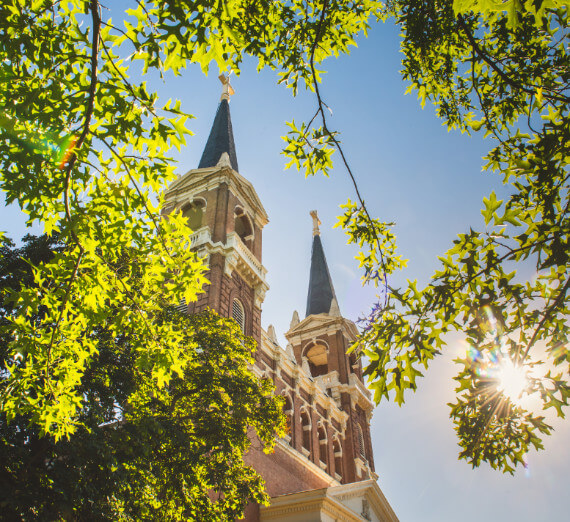What Inspires You?
At Gonzaga, you'll connect your passion with a purpose.
At Gonzaga, you'll connect your passion with a purpose.


Carissa Kanae sees her time at Gonzaga as a "scrapbook or quilt, a collection of different things that come together beautifully."

Gonzaga fellowship will prepare K-12 teachers to integrate AI into the classroom thanks to support from a grant from the Gates Foundation.

Discover a daily source of inspiration and reflection designed to illuminate the meaning of the holiday season through Gonzaga University's Advent Calendar.

Curious about Gonzaga? You'll find an exemplary learning community that educates students for lives of leadership and service for the common good.
Student-to-faculty ratio
of students graduate in six years or less (national average is 65%)
Average class size
Graduates employed, pursuing higher degrees or in service orgs (2021-2023)
